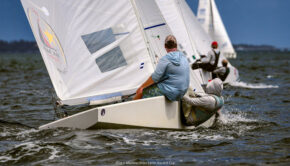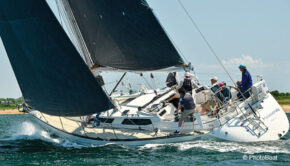Success and failure of youth sailing
Published on February 19th, 2021
Perhaps it’s naive that children should be introduced to the joy of sailing, and if they desire later, to the competition of sailing. However, most get fast-tracked to racing, and if they don’t enjoy it, then leave sailing for other pursuits. Sad but true.
A story titled, How sailing as a teenager prepared me for a career in tech and gaming, offered a ‘good news, bad news’ look at junior sailing. While the author shared attributes of the sport which contributed to valued personal growth, it also revealed how an immense investment in competition never offered the chance for her to like sailing for sailing.
Read how 2009 Byte Cll World Champion Najwa Jumali details her path through the sport:
There are few worse places than hanging onto a capsized sailing boat off the Belgium coast, being buffeted by 25 knot winds and three-meter-high waves but that was where my teammate and I found ourselves back in 2011 as our latest attempt at sailing glory capsized on us and ended in us being rescued by the onlooking safety boats.
That ignominious incident took place during the Junior European Championships in Belgium. At the age of nine, my parents enrolled me and my sister in sailing lessons at the Singapore Armed Forces Yacht Club and since that day, my sailing pursuit took me to many places around the world including, but not limited to Italy, France and Croatia.
While I haven’t sailed in years, I still look back at the ups and downs of my sailing career as some of the most formative years of my life that still help me today in my tech journey.
Here are some of the skills sailing taught me that I still lean on today:
Complex and strategic thinking
Singapore is an inherently tricky place to sail and requires a high degree of strategic thinking. The typical condition of light and shifty winds combined with strong currents can be attributed to the fact that Singapore is surrounded by other countries.
I learned how to read charts showing where the currents would come from and began to understand how to read and predict wind patterns.
Discipline and hard work
Sailing involves a lot of discipline, long hours and hard work. I would spend hours rigging my boat at the beginning of the day and de-rigging it at the end.
In this process, we would adjust ropes and strings up to the centimeter to make sure our equipment’s potential was maximized. This was all logged knowledge we accumulated through hours of training and testing optimal set-ups. – Full report









 We’ll keep your information safe.
We’ll keep your information safe.